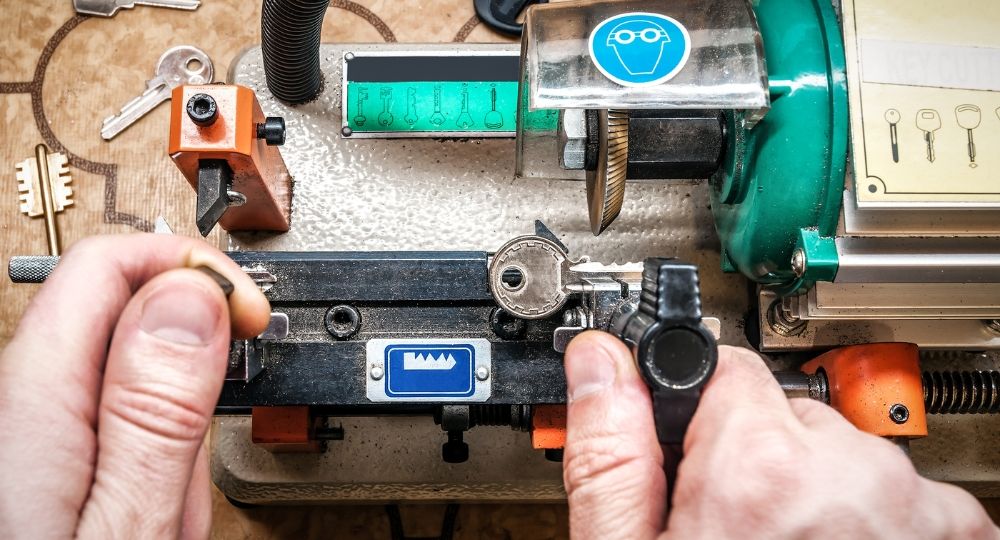
Are you fascinated by the art of locks and keys, and dream of a career that combines technical expertise with problem-solving skills? Becoming a locksmith could be the path to a fulfilling and rewarding profession. Whether you’re a seasoned professional seeking a career change or a budding enthusiast eager to embark on a new journey, learning how to become a locksmith in Ontario is the key to unlocking a world of opportunities. In this comprehensive guide, we’ll walk you through the essential steps and requirements to help you secure your future in this esteemed trade.Locksmithing is an occupation that offers employment to individuals with specialized skills and experience, and locksmiths provide employment for these professionals. Locksmiths specialize in everything from lock repairs to installing security systems; plus, emergency calls can always be addressed promptly by them.
Whoever wants to become locksmiths should consider enrolling in an apprenticeship or training program offered at vocational schools and career colleges.
High school diploma or GED
Ontario requires at minimum a high school diploma as the qualification for becoming a locksmith, along with excellent vision and manual dexterity. Anyone interested in locksmithing should inquire with their guidance counselors regarding the Ontario Youth Apprenticeship Program (OYAP), an excellent way to begin this lucrative profession at their own pace and pay-off in dividends over time. As well as fulfilling an apprenticeship and taking specific courses to obtain licensure.
Vocational schools and career colleges across Canada offer a range of courses and programs to teach locksmithing basics. Some are even offered online for flexible completion at your own pace. You will learn everything you need to know to install or repair locks properly, while gaining hands-on experience practicing on real lock systems.

Along with courses and an apprenticeship program, certification requires passing a test administered by the Ministry of Labour, Training and Skills Development. If successful in passing it, you will be awarded with a certificate of apprenticeship – the highest form of recognition in this trade – while those failing may need to work with a sponsor and find employers willing to train them instead.
Once you have obtained your certification, it will be time to launch your locksmith business. In order to operate legally and responsibly, obtaining a business license as well as registering your tools with provincial trades registry are essential steps towards starting up a locksmith shop and having liability coverage should there be any accidents while working at clients properties.
Professional locksmiths will have many responsibilities, such as rekeying locks, altering door lock combinations and installing security systems. Furthermore, they should keep up with technological changes within the industry to offer clients excellent services.
Apprenticeship
An apprenticeship is a training program that provides the opportunity to work and learn a trade while earning a wage. Unlike internships, which often require additional education to qualify, apprenticeships offer real jobs with extensive on-the-job training that increase as you master your skills. Apprentices not only learn new trades but also gain invaluable experience managing workplace relationships and maintaining professional schedules.
The requirements for becoming an apprentice vary according to the profession in question, from high school diploma or equivalent, additional education (such as college degree or postsecondary vocational training), career center training programs or certification courses available from colleges or universities – you could even reach out to local unions or community organizations for assistance when searching online or locally for opportunities.
An apprenticeship can be obtained by applying through a sponsor, who could be an individual employer, union, or group of employers. Your sponsor typically offers classroom training over eight to twelve week blocks; some courses even qualify for college credit!
Conditions governing apprenticeship programs differ by province and territory, with most being overseen by provincial governments. Skilled Trades Ontario maintains a list of approved trades and apprentice programs. If you’re interested in an apprenticeship program, make sure you conduct adequate research into its qualifications as well as reach out to your local Ministry of Labour or Skills Development office for more information.
Apprenticeships typically last four years and offer salary while you train. Sponsored by employers, unions and tradespeople, you will be assigned a journeyman in your field as well as attending college-level classes covering codes, practices and practical mathematics necessary for your new career. Apprentices pay for these classes and hours themselves while often being eligible for scholarships – saving thousands in tuition costs compared to pursuing a traditional bachelor’s degree and helping avoid debt that comes with student loans.
Certification
If you want to become a locksmith, training programs must first be completed. These may be offered through vocational schools or trade associations such as ALOC; others offer online courses and certification. Completion of such training programs ensures you meet both ethical and regulatory requirements of performing locksmith work.
High school graduation is generally required for participation in these programs; the exact qualifications will depend on both your program of interest and location. Some programs also require an apprenticeship in order to gain hands-on experience; this can be costly; however, this method is one of the best ways to become a skilled locksmith as an apprentice will learn under a certified locksmith while earning their living while honing this trade.
Once your apprenticeship is over, you can take the certification exam. This examination tests your skills and knowledge of the trade; once passed you will become a fully-fledged locksmith but please be aware that this process may be long and expensive.
No matter their state of practice, locksmiths usually need a license in order to practice their trade. This is necessary due to some states having stringent licensing rules that could hinder your career prospects. Furthermore, you must keep records of all your work completed and adhere to industry standards to maintain your license.
As a locksmith, success requires having exceptional hand-eye coordination and manual dexterity. Additionally, you must be able to follow oral and written directions, use basic computer operations, be familiar with all tools of trade as well as safety precautions and procedures, among other attributes.
As well as these qualifications, locksmiths should possess a strong work ethic and superior customer service skills. You must be flexible enough to work varying hours and provide emergency on-call services when necessary. Although many locksmiths work for large security or hardware businesses, you could always start your own business and cater to clients directly.
Licensing
First step to becoming a locksmith: enrolling in a training program. These can be found at local community colleges or vocational schools and typically combine classroom instruction and hands-on practice for maximum learning potential. Programs may take months or years to complete before potentially leading to certification in your chosen field; additionally it’s wise to verify if licensing requirements exist within your state before embarking on this career journey.
As an engineer, you must possess both mechanical and electronic aptitude, along with an interest in puzzles and problem-solving. Being detail oriented and persistent are keys to being successful in this profession, while having a strong work ethic and sense of integrity is also vital to its success.
An essential requirement of success in any job is being able to understand and follow instructions. You will need to know how to install and repair various locks – automotive, residential, commercial, electrical – including automotive locks as well as electric locks; use various hand and power tools; as well as interpret blueprints or technical documents correctly.
Once your apprenticeship has come to a conclusion, the next step should be registering for a licensing exam. You can contact your local government apprenticeship office and learn about any requirements or processes involved with licensing exams in your province. Here, they can give advice about licensing processes or any additional needs that need to be fulfilled before taking this step.
Apprentice requirements for locksmiths differ across Canada. Some provinces require that candidates pass both written and practical examinations before becoming licensed; in others, work under supervision from an established locksmith will suffice in obtaining your license.
To best prepare for an apprenticeship exam, it’s recommended that you attend a vocational school that offers either a certificate or diploma in locksmithing. Many online courses exist that can help prepare you to become licensed professional locksmith. Furthermore, consider joining one of the trade associations like the Associated Locksmiths of Canada or Canadian Security Association which offer networking and professional development opportunities as part of their membership benefits.
Are you in search of locksmith services in Toronto or any other city in the Greater Toronto Area? Look no further! Visit our homepage or call us for a free estimate or to request a service!

